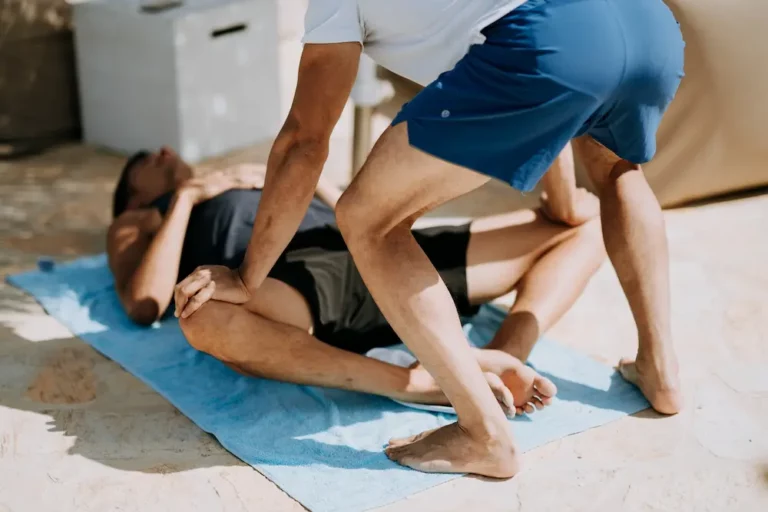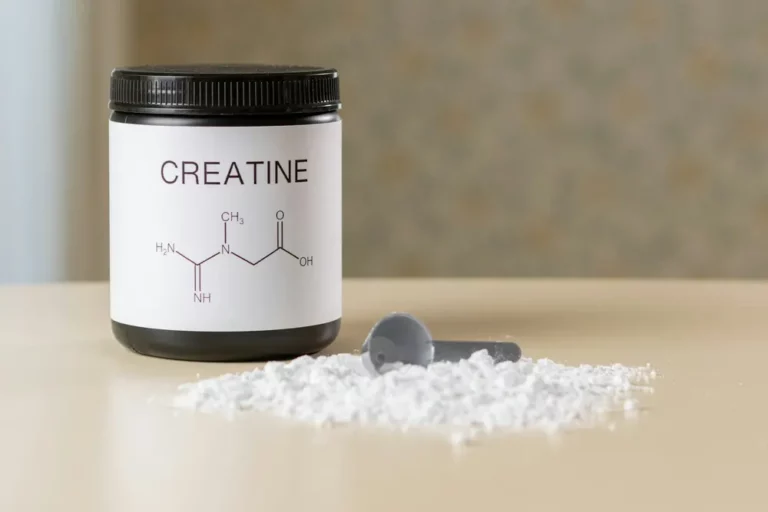How to Stop Pre-Workout Itch: Tips & Ingredient Alternatives
Have you ever experienced that itchy, tingly sensation after taking your pre-workout supplement? It’s a pretty common experience and, let’s be honest, can be a bit distracting when you’re just about to crush your workout. But don’t worry, because today, we’re going to explore some simple and effective ways to get rid of that pesky pre-workout itch.
Whether it’s tweaking your supplement intake or trying some cool-down tricks, we’ve got you covered. So, grab your water bottle, and let’s dive into some itch-free fitness solutions that will keep you focused and comfortable during your exercise routine. Ready to say goodbye to the itch? Let’s get started!
Understanding Pre-Workout Itch
When I hit the gym ready for some heavy lifting, the last thing I want is to be distracted by an itchy sensation that just won’t quit. Let’s dive into why this happens and how I’ve learned to identify the usual suspects behind that nagging itch.
What Causes Pre-Workout Itch?
The crux of the issue often boils down to beta-alanine, a naturally occurring compound that’s frequently added to pre-workouts. The reason it’s so popular in these supplements is its ability to reduce fatigue, helping me push through those extra reps. However, it comes with a side effect: a distinctive tingling or itching sensation known as paresthesia. This phenomenon occurs when beta-alanine triggers neurons in the brain, leading to an itchy or tingling feeling, predominantly in the neck, shoulders, and arms. While it might sound alarming, I’ve discovered it’s generally nothing to worry about health-wise.
Identifying Common Ingredients Causing Itch
Beta-alanine might be the main character in the saga of pre-workout itch, but it’s not the sole player. Other ingredients can also contribute to that uncomfortable feeling. Here’s what I’ve found:
- Niacin (Vitamin B3): Often included for its metabolic benefits, niacin can cause “niacin flush,” a temporary redness and itchiness of the skin.
- Caffeine: While not directly causing itchiness, in high concentrations, caffeine can exacerbate feelings of discomfort or lead to skin sensitivity in some individuals.
Despite these minor hurdles, understanding the cause of pre-workout itch has helped me navigate my fitness journey with a bit more comfort.
Managing Pre-Workout Itch
Strategies to Minimize Itching Sensation
When it comes to managing the itchy sensation that can come with pre-workout supplements, I’ve found a few strategies that can really make a difference. First off, choosing pre-workouts without beta-alanine is a straightforward way to sidestep the issue entirely. Not every pre-workout on the market contains this ingredient, so shopping around for one that doesn’t can save you a lot of discomfort.
If you’re like me and can’t give up on your favorite pre-workout blend, another tactic is to pair your supplement intake with a meal. I’ve noticed that taking my pre-workout with food tends to dampen the itchy sensations. This could be because food affects the supplement’s absorption rate, making the release of beta-alanine into my system more gradual.
Additionally, splitting your doses throughout the day can also mitigate the itchiness. Instead of taking a full dose all at once, I’ve had success splitting it into smaller portions. This approach can reduce the intensity of the itch, making my workouts more pleasant.
Adjusting Pre-Workout Dosage and Frequency
For those of us determined to keep beta-alanine in our pre-workout routine, adjusting the dosage can make a notable difference. The International Society of Sports Nutrition suggests paresthesia is more likely with doses over 0.8 grams, especially in products without sustained-release formulations. By reducing the dosage, the occurrence of itchy sensations can be minimized significantly.
On the matter of dosage, let’s look at some data to illustrate the point:
| Dosage (grams) | Likelihood of Itching Sensation |
|---|---|
| Above 1.6 | High |
| 0.8 to 1.6 | Moderate |
| Below 0.8 | Low |
As shown in the table, keeping your pre-workout dosage below 0.8 grams could be a sweet spot for those looking to avoid itching.
Another effective strategy I’ve employed is adjusting how frequently I take pre-workout supplements. If I know I’ll be hitting the gym hard a few days in a row, I’ll make sure to limit my pre-workout supplements to those sessions only, giving my body a break in between. This intermittent approach helps prevent the body from becoming too accustomed to the stimuli, possibly reducing the itchiness felt.
Alternative Ingredients in Pre-Workout Supplements
When I’m reaching for a pre-workout supplement, I know I’m not alone in wanting to avoid that pesky itch. Thankfully, there are alternatives to beta-alanine that don’t cause this sensation. Let’s dive into some of the non-itching ingredients you might find in pre-workout supplements.
Exploring Non-Itching Alternatives to Beta-Alanine
It’s no secret that beta-alanine can cause a tingling sensation, but luckily, there are other ingredients that can enhance workout performance without the itch. For instance, creatine is a well-researched supplement that increases strength and muscle mass by improving ATP regeneration. It’s a great option for those looking to boost their workouts, and best of all, it doesn’t lead to skin tingles.
Another alternative is L-citrulline, an amino acid that boosts nitric oxide production in the body. This increase in nitric oxide improves blood flow to muscles during workouts, enhancing endurance and reducing fatigue. What I love about L-citrulline is not just its effectiveness but also its non-itching nature.
Then there’s taurine, often found in energy drinks, which can improve cardiovascular health, exercise performance, and electrolyte balance. Taurine doesn’t cause the tingling sensation that beta-alanine does, making it a great substitute for those looking to ditch the itch.
The Role of Caffeine and Other Stimulants
Caffeine is a powerhouse when it comes to pre-workout ingredients. Not only does it help improve focus and alertness, but it also increases endurance and reduces perceived exertion during workouts. The beauty of caffeine is that while it’s highly effective, it doesn’t cause the same skin tingles as beta-alanine. Of course, sensitivity to caffeine varies from person to person, so it’s essential to find the right dose for your body.
Beyond caffeine, there are other stimulants like Yerba Mate and Guarana that can provide an energy boost without the uncomfortable side effects associated with beta-alanine. These alternatives can help sharpen focus and provide the kick needed to power through a tough session, and they come with the added bonus of not causing any unpleasant sensations.
The inclusion of these alternative ingredients can significantly enhance the pre-workout experience by providing the necessary boost without the notorious itch. For that reason, make sure to switch to options with less or no caffeine, like moringa tea.
Dietary Considerations to Reduce Itchiness
The Impact of Food Intake on Pre-Workout Effects
I’ve found that what I eat before exercising can significantly influence how my body reacts to supplements, especially regarding the dreaded pre-workout itch. Regularly consuming foods naturally rich in beta-alanine, like poultry, beef, pork, and fish, can help mitigate some of that discomfort. These foods provide smaller amounts of beta-alanine compared to supplements but without the risk of paresthesia, making them a safer option for those sensitive to the effects.
But it’s not just about beta-alanine. Eating a balanced diet that stabilizes my blood sugar levels plays a crucial role too. Pairing a small, balanced meal with my pre-workout routine has helped reduce both the itchiness and those nasty jitters some supplements cause.
Balancing Diet and Supplement Intake
Balancing my diet and supplement intake has been key to reducing the itchiness associated with pre-workout supplements. I learned that people who consume meat regularly get about 1 gram of beta-alanine daily from their diet alone. Although this is less than what’s found in supplements, it contributes to the overall pool of beta-alanine in my body, potentially reducing the need for high doses in supplement form.
For those looking to avoid supplements altogether, focusing on a high-protein diet that includes foods naturally containing beta-alanine, like meat, fish, and poultry, can be an effective strategy. However, for active supplement users, staying informed about the dosages in your products is crucial. It’s recommended to keep dosages below 16 grams per serving to avoid kickstarting pre-workout itchiness.
In essence, by carefully choosing what I eat and being mindful of the supplements I take, managing and even reducing the itchiness associated with pre-workout supplements has become a more achievable goal.
Selecting the Right Pre-Workout Supplement
Understanding Different Brands and Formulas
I’ve noticed that not all pre-workout supplements are created equal. Some brands, for instance, cater specifically to those of us who are particularly sensitive to beta-alanine’s itch-inducing effects. Brands like Gorilla Mode, 4 Gauge, and PreLab Pro have been on my radar for a while. They’ve managed to formulate options that either exclude beta-alanine altogether or incorporate it in such a way that minimizes discomfort. My research also led me to discover that many newer, advanced formulas are intentionally leaving out beta-alanine unless it’s meant to be supplemented on the side on non-workout days. This insight was a game-changer for me, underscoring the importance of staying on top of industry trends and formula advancements.
Reading Labels and Ingredient Lists Carefully
When I’m considering a new pre-workout supplement, I’ve learned to read the labels and ingredient lists with a fine-toothed comb. Many brands, for example, utilize CarnoSyn – a patented form of beta-alanine known for its safety and efficacy. It’s fascinating to consider the options available, such as instant release versus sustained release. Opting for a sustained release variant of beta-alanine can significantly reduce the likelihood of experiencing intense itchiness. I’ve also started paying attention to certifications from credible organizations on labels. Certifications from the Natural Products Association (NPA), Swiss Medic, the Therapeutic Goods Administration (TGA), Health Canada, and the Natural Food Certifiers (NFC) add an extra layer of trust and assurance to the safety and effectiveness of the supplement. Upon further inspection, Thorne’s beta-alanine supplement caught my eye. It incorporates CarnoSyn’s sustained-release formula, offering a tangible solution for those of us looking to minimize the itch while not compromising on performance.
H2: When to Seek Medical Advice
Navigating the world of pre-workout supplements can be tricky but with the right knowledge and a bit of trial and error, you’ll find the perfect fit for your fitness journey. Remember, while it’s common to experience a bit of itchiness, it shouldn’t be unbearable. If you ever find yourself in discomfort that seems out of the ordinary or if the itchiness persists despite trying alternatives, it might be worth consulting a healthcare professional. They can provide personalized advice and ensure there’s no underlying issue at play.
At the end of the day, the goal is to enhance your workouts, not detract from them. By choosing the right supplement and paying attention to how your body reacts, you can focus more on hitting those personal bests and less on the itch. Here’s to achieving your fitness goals with comfort and confidence!







